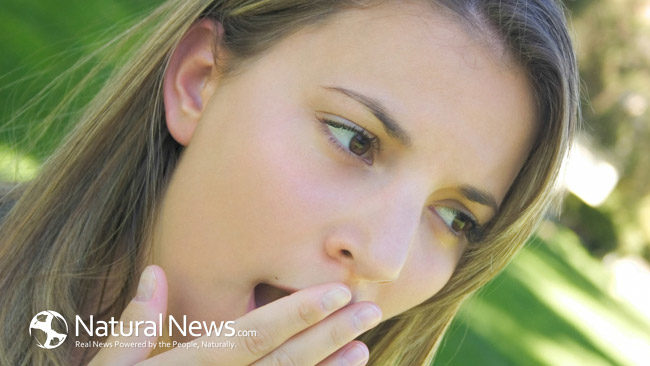Proper sleep is one of the most important things we can do to support our health and general well-being. But for various reasons, we often don’t get the deeply rejuvenating rest we need because of difficulty falling asleep. Tossing and turning for a good part of the night can lead to lethargy, sluggishness and inattentiveness the next day, only to repeat the following day if trouble falling asleep is a persistent problem. While prescription sleep medications can help short-term, they inflict side effects like organ damage and promote drug dependency, making it even more difficult to fall asleep without a prescription pill.
There are a number of natural alternatives that can work just as well as drug-based sleep aids, that can be used individually or combined to promote the relaxed mood needed to fall asleep easily and peacefully. The following are five of the top natural sleep aids proven to support relaxation and improve one’s ability to drift into a deep rest. They are completely safe and have none of the damaging size effects of prescription-based sleep drugs.
- GABA: GABA, or Gamma Amino Butyric Acid, is a muscle relaxer that can relieve stress and promote relaxation. It functions as a neurotransmitter that inhibits prolific activity of the central nervous system, thereby encouraging a calmer mood, and the stimulation of GABA receptors in the body themselves foster an enhanced ability to sleep. Take 500mg to 1gm of a powder or capsule on an empty stomach 20-30 minutes before bed, and you’ll notice yourself dozing off. If you feel it’s not strong enough, gradually increase the dose in increments of 500mg until you find a satisfactory dosage.
- L-Theanine: L-theanine is a non-essential amino acid that promotes relaxation and calms anxiety. Studies show that L-theanine consumption increase alpha waves, the brain waves that characterize relaxation, within 30-40 minutes of intake. While L-theanine does not promote as much drowsiness as the others, its ability to calm the nerves can be enough to help you ease into sleep. Start with 100mg on an empty stomach before bedtime, and increase the dose in increments of 50mg or 100mg until you find a suitable amount.
- 5-HTP: 5-HTP, or 5-hydroxytryptophan, is a natural brain chemical that tends to be lacking in people who have difficulty falling asleep. It acts as a precursor to serotonin, which regulates behavior and emotional states like anxiety and tension, and also plays in role in regulating sleep. Try taking 100mg on an empty stomach 20-30 minutes before you plan to go to bed, and increase in dosages of 50mg or 100mg until you find a dosage right for you.
- Valerian Root: Valerian root is a plant-based natural sedative that in small amounts promotes relaxation, and in larger amounts increases drowsiness. Its effects seem to be centralized around its interaction with GABA receptors, which as mentioned above, encourage sleep. While it does work well, it can be overused—if it’s consumed on a daily basis, the intended effect can diminish over time, so it’s best on a cycle on-cycle off basis. You can try 1gm on an empty stomach before bedtime, and increase the dosage in 500mg or 1gm increments as needed.
- Melatonin: This article wouldn’t be complete without melatonin. Melatonin is the hormone most directly involved with sleep and sleep cycles. It’s secreted by the pineal gland and released into the blood, so varying levels of melatonin actually circulate throughout the body at all times. Its production is sensitive to the presence of light, and so it’s secreted primarily in the dark, and more especially, when it’s pitch black. The use of nightlights or glowing electrical switches in the bedroom can inhibit your body’s ability to produce sufficient melatonin, causing you to be perpetually melatonin-deficient, and therefore suffer trouble falling asleep. One way to deal with this is to take melatonin supplements before going to bed. Start with a 3mg dose, and if needed, increase in increments of 1 or 2gm until you find a dose that works effectively.
Sources:
http://www.ncbi.nlm.nih.gov/pubmed/11983310
http://umm.edu/health/medical/altmed/supplement/5hydroxytryptophan-5htp
http://en.wikipedia.org/wiki/Valerian_(herb)
http://www.nlm.nih.gov/medlineplus/druginfo/natural/940.html





